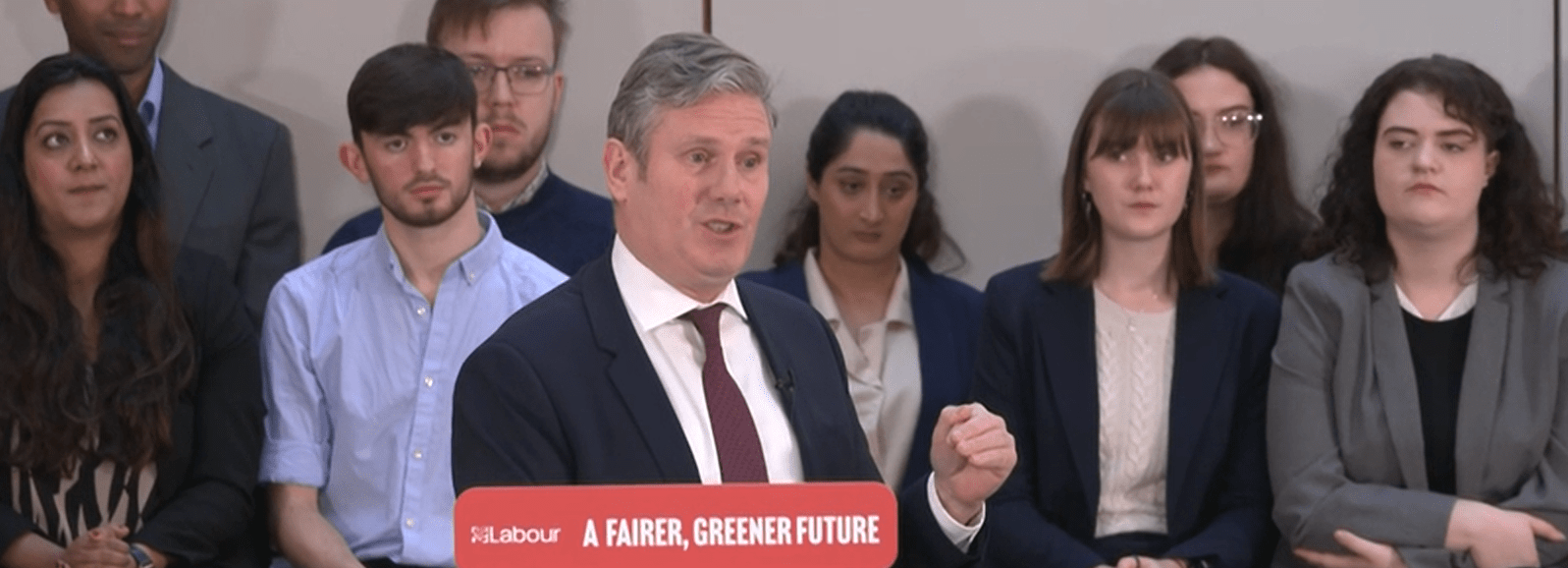The by-election in the parliamentary constituency of Chester last Thursday went largely unreported by the media. But it resulted in a big increase in the Labour majority and this was all the more remarkable, given that the previous Labour MP had stood down after a series of accusations of sexual misconduct.
By-elections are never more than an approximate gauge of public opinion, this one with a turn-out of only 41 per cent, compared to nearly 72 per cent in 2019. But they nevertheless have some value is seeing which way the wind is blowing and it is clear that there is not so much a ‘wind’ as a howling gale blowing against the Tories.
The basic figures from the by-election show Labour’s vote increased in percentage terms, from just under 50% to over 60%. The lower turnout saw Labour’s number of votes fall by nearly 10,000, but against that, over 14,500 Tory votes disappeared. Their vote amounted to just over 22 per cent, a miserable showing – especially given that their candidate was an NHS nurse.
One very bright ray of sunshine was seeing UKIP reduced to 0.6 per cent of the vote, getting only two dozen more votes than the Monster Raving Loony Party. Although it is a mystery why anyone votes for UKIP at all, given that the Tory party has taken over all of its policies.
Kwasi Kwarteng’s budget hit the Tories hard in the polls
We always have to bear in the mind the caveat that by-election results may not be replicated in a general election, but Chester still represents a significant decline for the Tories. It shows that the opinion poll lead that Labour gained as a result of the collapse in living standards – most notably after the rich-persons budget of Kwasi Kwarteng in September – has not disappeared. The lead may have softened as Rishi Sunak steadied the Tory ship, but it still looks odds on that Labour will win the next election, whenever it comes.
The likelihood of a Labour victory was emphasised by polling pundit Sir John Curtice, who told BBC Radio 4, that the result showed Labour in its “strongest position” for ten years. “I think the crucial point is if we compare this by-election performance with comparable previous by-elections, it is consistent with the claim a) that Labour are in a stronger position than they have ever been in the last 12 years, and b) that the performance is consistent with what happened the last time we had a parliament which ended in a defeat of a Conservative government.”
It is an answer to all of those on the ultra-left and those who have walked away from the Labour Party, on the grounds that the Labour Party is allegedly “dead”. In fact, it is far from dead and twelve or thirteen million votes are likely to confirm that at the next general election.
Tory MPs scrambling for the exits
Even many Tory MPs are now resigned to losing their seats and they are scurrying around to their friends in business and finance to find alternative employment. The latest big name to announce that he is stepping down in Sajid Javed, former Chancellor, Home Secretary and Health Secretary. He made his fortune in business before he did a stint representing the same class of people in parliament. Now he is going back to real home.
Javed is joining a veritable stampede of Tory MPs scuttling away, like rats from a doomed ship. As a Financial Times columnist put it, leaving aside the wide variety of ‘excuses’ (family reasons, health, etc) “the big picture story is that Conservative MPs do not feel optimistic about the future.”
Meanwhile, in what is being billed as a big policy announcement, the Labour leadership, co-opting the help of former Prime Minister, Gordon Brown, announced what has been promised as “the biggest ever transfer of power from Westminster to the British people” if Labour is elected.
Starmer and Brown announced that Labour would abolish the House of Lords, to replace it with an elected chamber and move around 50,000 civil service jobs out of London. There would be additional powers devolved to the Northern Irish, Scottish and the Welsh Assemblies, as well as more devolved powers to the regions of England.
Remember “British Recovery Bonds”?
It remains to be seen whether or not a Labour government would indeed abolish the House of Lords – it has been in a Labour manifesto before – although its demise would not be mourned much in the labour movement. It is more likely that it will be quietly dropped, like Starmer’s “British Recovery Bonds” idea launched with great fanfare nearly two years ago and not mentioned since.
But what is notable in this big policy initiative is, once again, it is a non-cost policy. Labour is obsessively steering clear of any commitments that cost money fundamentally because they are wedded to the same model of ‘fiscal responsibility’ as Rishi Sunak. Even the powers devolved to regions and other nations within the UK will only allow them to shuffle around money local councils and regions already have – there will be no more given.
In fact, the right wing of the party is obsessed with finding policies that cost nothing. The latest offering from the misnamed Progressive Britain faction (formerly Progress) is a paper entitled The Role of Modern Government, which, according to an e-mail circular to members, “sets out ten ways government can use it’s power – without significant spending…”
What the Labour leadership ought to be doing is addressing the concrete and urgent issues facing the big majority of the population, those who work or have worked for a living, and who are now desperately struggling to keep their heads above water. When it comes to the crisis in living standards, in rising food, energy and housing costs, Keir Starmer is happy to condemn the Tories in words. But when it comes to action, such as supporting those workers fighting to maintain their living standards, he fails miserably.
Starmer does not support nurses fighting for a decent wage
He does not support the fight of nurses and NHS staff for a decent pay rise, because he does not want to make promises that he, as a Prime Minister, “cannot keep”. He demands that Labour MPs and ministers stay away from picket lines. In short, he is preparing Labour and trade union members for a Labour government that will introduce a Labour austerity policy, with non-cost ‘reforms’ to cover his backside, reforms that will make little difference to the daily lives of workers, at least alongside cuts and rising prices.
As we have argued, a Labour victory under Keir Starmer, is a step forward from this corrupt and chaotic government. It is not that we have any illusions in the economic policies of Keir Starmer and shadow Chancellor, Rachel Reeves, which are rooted in the preservation of the capitalist system. Their ideas are a dead end, but to be exposed as such, they need to be tested in the full glare of public opinion. For that reason, we welcome the result of the Chester by-election.
[Top picture: BBC footage of Keir Starmer launching his policy initiative]



